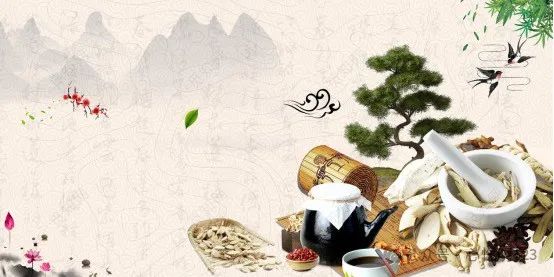
In the long journey of humanity’s pursuit of health, nutritional therapy has always held a key position as an ancient and wise approach. Nutritional therapy refers to the clever use of the properties and nutrients of food to comprehensively regulate the body, thereby achieving the goals of preventing disease invasion, assisting in disease treatment, and promoting physical recovery. The concept of “food and medicine sharing the same source” has a long history, profoundly revealing the intricate connections between food and medicine. Many foods not only provide the energy and nutrients necessary for the body’s daily operations but also possess unique medicinal properties. Behind this, traditional Chinese medicine (TCM) theories play an important supporting role.
Foods for Preventing Cardiovascular Diseases
Cardiovascular diseases have become a health killer in modern society, seriously threatening people’s lives. From the perspective of TCM’s Five Elements theory, the heart belongs to fire, corresponding to summer, while fire overcomes metal, and the lungs belong to metal. If the heart’s function is disordered, it may affect the lung’s ability to disperse and descend, thereby impacting the circulation of qi and blood. In preventing cardiovascular diseases, certain foods can be considered natural “protectors.” Oats, from the perspective of TCM’s properties and meridians, are sweet in taste, neutral in nature, and belong to the spleen, stomach, and heart meridians. Oats are rich in soluble dietary fiber beta-glucan, which can absorb cholesterol in the intestines like a sponge, reducing its absorption and effectively lowering cholesterol levels in the blood, thus safeguarding vascular health. Studies have shown that consuming a certain amount of oats daily can significantly lower low-density lipoprotein cholesterol (the “bad cholesterol”) levels in the blood. This aligns with TCM’s principle of regulating the spleen and stomach to promote transformation and clear the blood vessels. When the spleen and stomach function normally, the essence of food is distributed, and impurities in the blood are reduced, allowing the blood vessels to remain unobstructed. Deep-sea fish such as salmon and cod are rich in Omega-3 fatty acids, which, according to TCM’s theory of yin-yang balance, have the effects of nourishing yin, subduing yang, and regulating qi and blood. They can regulate blood lipids, reduce blood viscosity, inhibit platelet aggregation, and decrease the risk of thrombosis. Additionally, Omega-3 fatty acids have anti-inflammatory properties, helping to alleviate vascular inflammation and protect the integrity of endothelial cells. Long-term consumption of deep-sea fish is beneficial for preventing cardiovascular diseases, utilizing the properties of food to balance the body’s yin and yang, ensuring smooth qi and blood circulation, and preventing cardiovascular diseases caused by qi and blood stagnation.
Food Therapy for Alleviating Digestive System Discomfort
The digestive system is the body’s “processing plant,” and any issues can severely affect quality of life. TCM believes that the spleen and stomach are the foundation of postnatal health and the source of qi and blood production. The normal functioning of the spleen and stomach directly relates to the body’s health. For indigestion, yam (Shan Yao) is an excellent food therapy ingredient. Yam is sweet in taste, neutral in nature, and belongs to the spleen, lung, and kidney meridians. It contains amylase and polyphenol oxidase, which can promote the digestive and absorptive functions of the spleen and stomach, enhancing their ability to transform and transport. Whether cooked into yam porridge or steamed, it can strengthen the spleen and benefit the stomach, fully aligning with TCM’s theory of strengthening the spleen and nourishing the stomach to promote digestion. When faced with constipation, according to TCM meridian theory, the large intestine meridian is interiorly related to the lung meridian, and dysfunction of the lung may affect the large intestine’s ability to transmit waste. Foods rich in dietary fiber are the “saviors.” Sweet potatoes, for example, are high in dietary fiber and have strong water absorption, which can increase stool volume and promote intestinal peristalsis, making bowel movements smoother. Additionally, the pectin in sweet potatoes can protect the intestinal mucosa and prevent intestinal diseases. Consuming an appropriate amount of sweet potatoes, taro, corn, and other coarse grains daily can effectively improve constipation, restoring vitality to the intestines. This is achieved by using food to regulate intestinal function, indirectly adjusting the functions of the organs related to the large intestine meridian, achieving overall balance in the body.

Food Choices for Assisting in Chronic Disease Treatment
For diabetes patients, reasonable dietary control is crucial. TCM categorizes diabetes as “Xiao Ke Zheng” (消渴症), believing it is often related to yin deficiency and dryness-heat. Pumpkin is an ideal food therapy ingredient; it is warm in nature, sweet in taste, and belongs to the spleen and stomach meridians. It is rich in pectin, which can slow the absorption of glucose in the intestines, preventing a sharp rise in blood sugar after meals. Additionally, pumpkin contains a certain amount of cobalt, which can promote metabolism and activate pancreatic cells, positively affecting blood sugar reduction. Steaming or cooking pumpkin with other vegetables is a good choice, utilizing its properties to nourish yin, moisten dryness, and regulate spleen and stomach functions to assist in blood sugar control. For individuals with chronic kidney disease, it is necessary to strictly control protein intake while ensuring sufficient high-quality protein consumption. According to TCM theory, the kidneys store essence, and chronic kidney disease often involves kidney essence deficiency. Foods like eggs are rich in high-quality protein, containing a complete range of essential amino acids in appropriate proportions, making them easy for the body to absorb and utilize. Consuming eggs in moderation can meet the body’s protein needs without overburdening the kidneys, helping to maintain stable kidney function. This is achieved by using food to replenish kidney essence and nourish the kidneys, alleviating symptoms of chronic kidney disease.
Nutritional therapy is not an overnight process; it requires long-term adherence. When choosing a nutritional therapy plan, one should consider individual constitution, disease status, and seasonal changes comprehensively, ensuring that it is tailored to the individual and the time. Let us fully utilize the power of food, enjoying delicious meals while building a solid health defense line for our bodies, preventing disease occurrence, promoting recovery, and embracing a better life.


